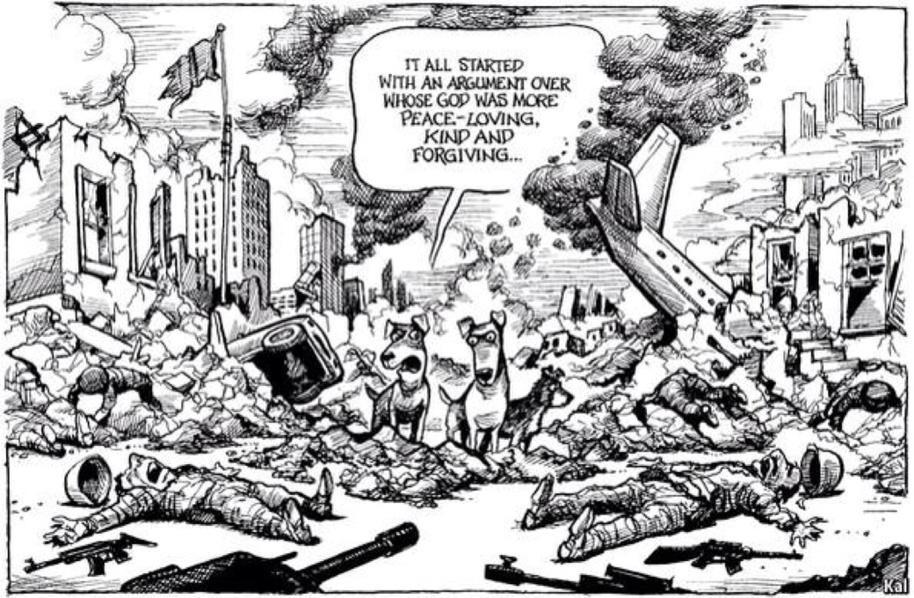Acts of violence committed in the name of religion or due to matters related to religion have made religious intolerance an issue of debate in recent times.
The frequency and intensity of violent acts with religious motivations have increased in the last few years and many countries have faced terrorist attacks by groups that profess to be guided by religion. The paradox is that all of this is happening even as religious, political leaders and even thinkers declare in public that all religions preach peace and that such violence is against the ethos of every religion.

Much of this violence is partly politically motivated but religious hatred, mistrust and rivalry are also major factors behind it. One would expect religion to make people better human beings who care for it, and live in harmony with others and nature. After all, most religions urge their believers to practice compassion, non-violence and charity. Why is there so much violence committed in the name of religion?
As peace advocates point out, those who are intolerant of the religious beliefs and practices of others are out of touch with the core, very basic values of their own religion. Instead, they focus on the differences in the name of religion, food habits, lifestyles etc. Being dogmatic, they look down upon the adherents of other faiths, which they regard as inferior or undesirable. Such an attitude breeds hostility and may lead to violence.

A deeper, more fundamental reason behind such intolerance is ignorance of spiritual truths. What is generally referred to as religion is a collection of beliefs, cultural systems and world views that they have associated with the clergy, scriptures, rituals and life practices. All these may differ from one religion to another, but spiritual principles are universal because they concern the spirits or the soul, which is the sentient entity at the core of every human being. The soul is non-physical, immutable and eternal. A body without a soul is a corpse. It is after a person is born, that he or she is labelled by the society as belonging to a particular religion. Some may not identify with any religion, or change their beliefs over time and consequently the religious label by which society identifies them also changes. Those who do not believe in God also get a label, that of being called an atheist.
But the soul is above such labels. It is a being whose intrinsic qualities are peace, love, purity, power, truth, happiness and bliss. These qualities appeal to us because they are part of our being. But when we forget that we are souls, we get disconnected from our true self and lose sight of what we have within us. Like a millionaire forgets who he is and is unaware of the riches he owns. Due to this spiritual amnesia, we begin to identify with our bodies which, unlike the soul can be seen with the eyes.
Religious intolerance cannot be ended by holding peaceful rallies or conferences. Only by spreading spiritual awareness in the world can we hope to establish peace in the world and end divisions in the human families along the fault lines of religion. A spiritually aware person will be connected to his/her inner reservoir of peace and express it in their life. If every person in the world does this, peace will automatically come to prevail on this planet because peace is our natural state of being.
Richa Singh is a student pursuing Economics from Jamia Millia Islamia.
edited by: Rutba Iqbal
Disclaimer: The opinions expressed in this publication are those of the author. They do not purport to reflect the opinions or views of The Jamia Review or its members.



Great article!